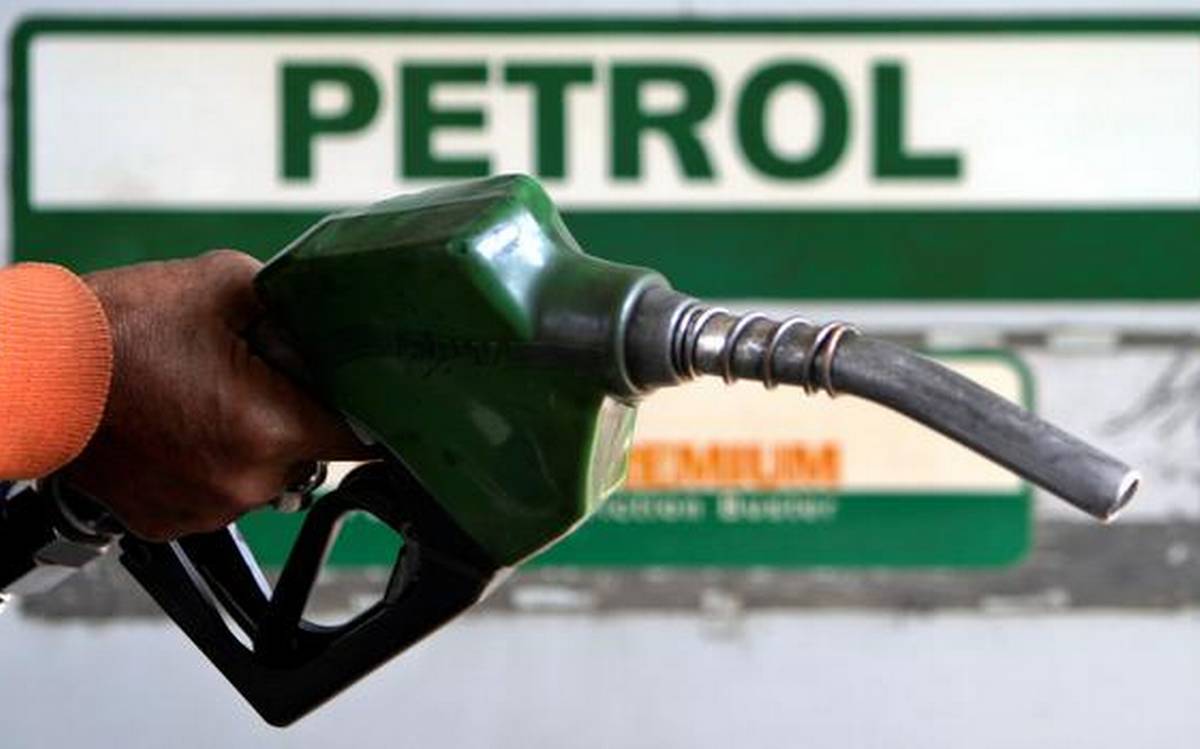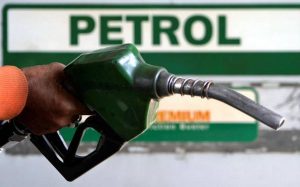
PETROL PRICE TO INCREASE FURTHER AS NAIRA-FOR-CRUDE NEGOTIATIONS STUMBLE

Operators in the downstream oil and gas sector are on edge as they await the Federal Government’s decision on the naira-for-crude deal between the Nigerian National Petroleum Company Limited (NNPCL) and Dangote Petroleum Refinery.
The six-month agreement, which began in October 2024, officially ends today, March 31, 2024.
Discussions on whether to extend or terminate the deal are still ongoing, but no resolution has been reached by the negotiating committee.
This uncertainty has already affected fuel prices, with petrol rising from about N860/litre to over N930/litre within a week.
Marketers warn that prices could exceed N1,000/litre in the coming weeks if the deal is not renewed, as it previously helped stabilize fuel costs.
Meanwhile, unless there is a last-minute change, Dangote Refinery’s petrol-producing unit is scheduled for a 30-day maintenance shutdown in June, according to Reuters.
A source from the finance ministry disclosed that negotiations have stalled, with no meetings held in the past week.
“Nothing new has happened. Probably after the holidays, the committee will sit and meet,” the senior government official stated.
The naira-for-crude deal was initially introduced on October 1, 2024, to enhance fuel supply, reduce import costs, and stabilize pump prices.
NNPCL recently reported that 48 million barrels of crude had been supplied to Dangote Refinery under the deal, with a total of 84 million barrels delivered since the refinery began operations in 2023.
NNPCL’s Chief Corporate Communications Officer, Olufemi Soneye, confirmed that discussions on renewing the agreement are ongoing, aiming to establish a new contract.
However, on March 19, Dangote Refinery announced a temporary suspension of petroleum product sales in naira.
The refinery attributed this to a mismatch between its revenue from sales and its crude oil purchase costs, which are currently denominated in U.S. dollars.
“Dear valued customers, we wish to inform you that the Dangote Petroleum Refinery has temporarily halted the sale of petroleum products in naira. This decision is necessary to avoid a mismatch between our sales proceeds and our crude oil purchase obligations, which are currently denominated in US dollars.
“To date, our sales of petroleum products in naira have exceeded the value of naira-denominated crude we have received. As a result, we must temporarily adjust our sales currency to align with our crude procurement currency,” the firm announced.
Immediately after the announcement, the cost of loading petrol at private depots in Lagos jumped to about N900/litre. It was less than N850/litre before the announcement.
Industry sources attributed the deal’s failure to the national oil company’s use of large volumes of future crude production as collateral for loans from international financial institutions, leaving insufficient crude for the domestic market.
Meanwhile, retail fuel prices rose to N930 in Lagos, N950 in Abuja, and N960 in northern regions.
Although industry stakeholders remain hopeful for an agreement, the uncertainty surrounding negotiations suggests otherwise.
In response, Chinedu Ukadike, National Publicity Secretary of the Independent Petroleum Marketers Association of Nigeria, criticized the situation, citing it as the primary reason for rising petrol prices at depots and retail stations. He added that a stakeholders’ meeting has been convened to discuss the way forward.
Ukadike said, “Because of this issue, we’ve called for a stakeholders meeting. We are going to meet to discuss it and come out with a way forward. We clamoured that crude oil should be sold in naira and any deviation would affect us. Our stakeholders’ meeting is very imminent.
“We had initially planned to meet this week, but it was postponed to May 1, 2025, because of the Sallah break and the upcoming Easter break.”
The national officer said the industry stakeholders expected at the meeting include the IPMAN National Working Committee and the executive and members of the Petroleum Products Retail Outlets Owners Association of Nigeria.
He further disclosed that marketers have lost over N200bn to price fluctuations in the last six months, which has, in turn, discouraged bulk buyers.
“We have lost over N200bn because of the price fluctuations in the last six months. What happens is that when we buy at a price, and vessels load, by the time they get to the depots and point of discharge, Dangote has reduced the price again. That little difference is borne by the marketer, and this makes it difficult to go back again and buy, after selling at a loss.
“This is because they don’t have any buffer to cushion the loss. Bulk traders have also reduced due to these risks,” Ukadike stated.
Petroleum product dealers have blamed the Federal Government for the recent surge in petrol prices, attributing it to the government’s decision not to renew the naira-for-crude deal with Dangote Refinery.
The Vice President of IPMAN, Hammed Fashola, warned that if the arrangement is not reinstated, Nigerians could soon pay as much as N1,000 per litre for petrol. He urged authorities not to burden citizens with dollar-based transactions.
Dangote Refinery had previously announced that it would stop selling fuel in naira to local marketers since it no longer receives crude oil in naira from the Nigerian National Petroleum Company Limited.
During the Eid-el-Fitr celebrations, Dangote Refinery, which had previously reduced petrol prices between December and March, adjusted its pricing after pressure from partners like MRS, Heyden, and Ardova. Consequently, petrol prices in Lagos and nearby states rose from N860 to N930 per litre, with even higher prices recorded in northern regions.
As fuel prices climb, transportation costs have also surged, worsening the cost of living crisis. The sudden policy shift has dashed hopes of relief for Nigerians.
Fashola described the price hike as unfortunate and urged members of the Depot and Petroleum Products Marketers Association of Nigeria to consider the impact on the masses. While acknowledging that crude oil prices and exchange rates are key factors influencing fuel costs, he emphasized that the naira-for-crude policy could help stabilize local petrol prices.
“It’s unfortunate the price of PMS is going up again. Although if you look at the crude oil, it is rising, the cause of this matter is Dangote and the naira-for-crude issue. Because we noticed that when Dangote announced the stoppage of the contract, there was an immediate reaction, especially from DAPPMAN members. They increased their prices, which is unfortunate,” he said.
While appealing to the Federal Government to renew the deal with the Dangote refinery, Fashola called on fellow businessmen to be more patriotic.
He declared that there was no justification for the price hike by depot owners, the same day Dangote announced the suspension of the sale of petrol in naira.
“I think we need to plead with the government to look at the agreement again, maybe that will drive the price down. I will equally appeal to our people to be more patriotic too, because I don’t see any justification for that initial increment. At least, they should have waited for the new consignment or so.
“But being what we are in Nigeria, it’s just a pity. But, I think that everything should not be about profit all the time. We should consider our citizens before we do anything. We hope that if the government goes back to the naira-for-crude arrangement, it will help reduce the price,” Fashola stated.
Asked if the NNPC and the Dangote refinery had announced an official price to marketers, he replied that the NNPC might name a new price after the Sallah break, saying whatever MRS says is from the Dangote refinery.
“NNPC is yet to react to the price hike. But we know that when MRS talks, it’s Dangote who is talking. MRS has announced new prices. And, I am very sure that after the holiday, NNPC will react too. MRS has informed marketers of its new prices. The prices depend on your location. For Lagos, I think it’s around N905 per litre. Outside Lagos, like Ogun State, it’s around N911. The pump price in Lagos is N930,” Fashola explained.
He stressed that prices may hit N1,000 in the coming days, saying, however, that the naira deal could have been a game changer.
“N1,000/litre is expected, but we just have to be patriotic and sincere with one another. In this era of deregulation, the price will go up and down. It depends on what is happening in the international market and the exchange rate. Those two factors are key to determining the prices of petroleum products.
“However, the local arrangement between Dangote and the Federal Government, that is, the naira-for-crude deal, would have been a game changer. We all witnessed that. It was working well before the agreement was terminated. But I think they can still renew it. At least, that would help to stabilise the prices. It would also help the Nigerian citizens, at least,” he maintained,
On the call by depot owners that the Federal Government should stop the naira-for-crude agreement because of its ‘negative effects’ on the economy, the IPMAN leader stressed that DAPPMAN members were only trying to protect their territory.
